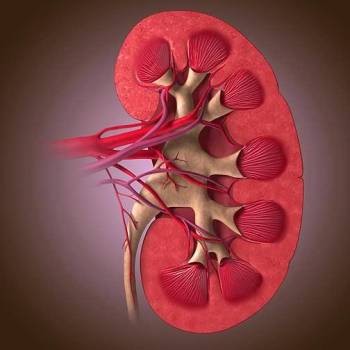Glomerulonephritis
Glomerulonephritis (GN) is a kidney disease in which the filtering system (known as glomeruli) of the kidneys become inflamed and eventually scarred, and hence slowly loosing the kidney’s important function of waste and excessive water removal from the body. GN is the second most common cause of kidney disease in Singapore and the data from Singapore Renal Registry showed that it accounted for 17.3 % of the kidney failure patients in 2006.
What causes Glomerulonephritis?
GN may be caused by specific problems with the body's immune system. Often, the precise cause of GN is unknown. If GN occurs on its own, it's known as primary glomerulonephritis. If another disease, such as lupus or diabetes, is the cause, it's called secondary glomerulonephritis.
 Some of the common causes of primary GN include :
Some of the common causes of primary GN include :
• IgA Nephropathy
• Focal Segmental Global Sclerosis (FSGS)
• Membranous GN
Many conditions are known to cause or increase the risk for secondary GN, including:
• Infections : viral and bacteria infections, hepatitis viruses, HIV, heart infections, abscesses
• Immune diseases : lupus, Goodpasture’s syndrome, blood vessels inflammatory diseases (vasculitis)
• Drugs
• Chemicals
• Cancers
• Diabetes
• Amyloidosis
What are the signs and symptoms of GN?
Signs and symptoms of GN may depend on whether you have the acute or chronic form, and the cause. Often there is no symptoms and is usually detected during pre-employment or life insurance screening as presence of blood or protein in the urine.
In Singapore, cases of young men with GN are often picked up through the routine medical examinations during their National Service enlistment.The condition may develop quickly, with loss of kidney function occurring over weeks and months (called rapidly progressive GN).In about a quarter of people with chronic GN, there is no history of kidney disease and the disorder first appears as chronic kidney failure.
Signs and symptoms may include:
• Blood in the urine (dark, rust-coloured or brown urine)
• Foamy urine (due to presence of protein in the urine)
• Joint aches and pains
• Skin rash (especially over face, legs and buttocks)
• Fever and body aches
• Swellings of the face, eyes, legs or abdomen
• Symptoms of chronic renal failure may develop (less urination, nausea, vomiting, lethargic, generalized itch, leg swelling and shortness of breath)
Tests and Diagnosis
In addition to a thorough physical examination and complete medical history, your physician/ kidney specialist may recommend the following diagnostic tests:
• Urine tests for detecting protein and blood in the urine
• 24 hours urine collection or urine protein/creatinine ratio to quantify the amount of protein leakage
• Blood tests for kidney function and complications of kidney failure
• Immune diseases tests (eg lupus)
• Ultrasound scan of the kidneys
• Kidney biopsy (This involves using a special needle to extract small pieces of kidney tissue for microscopic examination to help determine the cause of GN. A kidney biopsy is almost always necessary to confirm a diagnosis of GN)
Treatment and Management
Treatment varies depending on the cause of the disorder, and the type and severity of symptoms. High blood pressure may be difficult to control, and it is generally one of the important aspect of treatment.
Medicines that may be prescribed include:
• Blood pressure medications are often needed to control blood pressure. Angiotensin-converting enzyme inhibitors and angiotensin receptor blockers are most commonly prescribed as they have added effect on urine protein reduction.
• Corticosteroids may relieve symptoms in some cases.
• Medications that suppress the immune system may also be prescribed, depending on the cause of the condition.
In more advanced cases, a procedure known as plasmapheresis may be used for some cases of GN due to immune-related causes to remove the excessive antibodies in the blood so as to reduce inflammation in the kidney tissues. Dialysis support may be required in those with serious complications of kidney failure.
Dietary measures include:
• Control salt and water intake to minimise fluid retention, swelling and hypertension
• Reduce protein and potassium intake to slow the build up of wastes in the body
What is the long term outlook for patients with GN?
GN may be a temporary and reversible condition, or it may get worse. Progressive GN may lead to chronic/advanced kidney failure. Those patients who have only blood in the urine with no significant urine protein usually have a better outcome. However, those patients with excessive amount of urine protein or if the kidney biopsy shows significant damage to the kidney at the time of diagnosis, they are more likely to develop kidney failure with time. The time it takes for GN to cause kidney failure is usually many years.
As most of them are asymptomatic and patients feel well, many are not aware they have GN or may have defaulted treatment in their early stages. The opportunity to control the illness is then missed as mild case without treatment can progress to a more serious stage with all the associated kidney failure complications. Remember, the whole process usually occurs over a long period of time, thus follow up and compliance with treatment are essential in preventing kidney failure.
Expert Author:
Dr Roger Tan, Consultant Nephrologist
The article above is meant to provide general information and does not replace a doctor's consultation.
Please see your doctor for professional advice.
